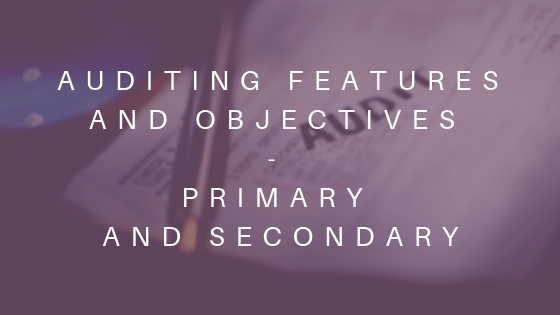This post explains Auditing features. The audit is a systematic and scientific examination of the books of accounts of the business. The Audit is done by an independent person or group of people qualified to do Audits.
Auditing Features – Attributes of Auditing
An audit is the verification of the results shown by profit and loss accounts and the state of affairs confirmed by the balance sheet.
The audit is a critical review of the system of accounting and internal control.
The audit is done with the help of the vouchers, documents, information, and explanations received from the authorities.
The critical responsibility of Auditor is to ensure that the financial statements and reports are authentic and show a fair view of the state of affairs.
An auditor investigates, analyzes, reviews examines the documents supporting the transactions.
He examines the minute books of Directors, shareholders, memorandum of associations to ascertain the correctness of the books of accounts.
Various methods and procedures are used for performing the audit.
The audit is not only limited to an examination of financial records, but it also includes other areas like operational audit, process audit, tax audit, secretarial audit, efficiency audit, social audit and more.
It involved reporting by the auditor on the accounts examined by him and prepared as per GAAP (Generally Accepted Accounting Principles) principle and present accurate and fair view.
Objectives of Auditing
There are two main objectives of Auditing. Primary and Secondary objective, let us understand both the objectives one by one.
Primary Objective
The main objective of an auditor is to report to owners that the financial accounts give an accurate view of the situation of the company’s activities.
Secondary Objective
The secondary objective is also known as incidental objective as it is related to the fulfillment of the primary purpose.
The incidental objectives of auditing are as follows:
- Detection and prevention of scams
- Discovery and prevention of mistakes
Detection of material frauds and errors as an incidental objective of independent financial auditing flows from the primary aim of determining whether or not the financial statements give an accurate and fair view.
Frauds can take place due to the manipulation of accounts, and it is essential for the auditor to find the fraud so it can be prevented in the future.
Errors refer to an accidental mistake in the commercial data arising due to ignorance of accounting procedures.
